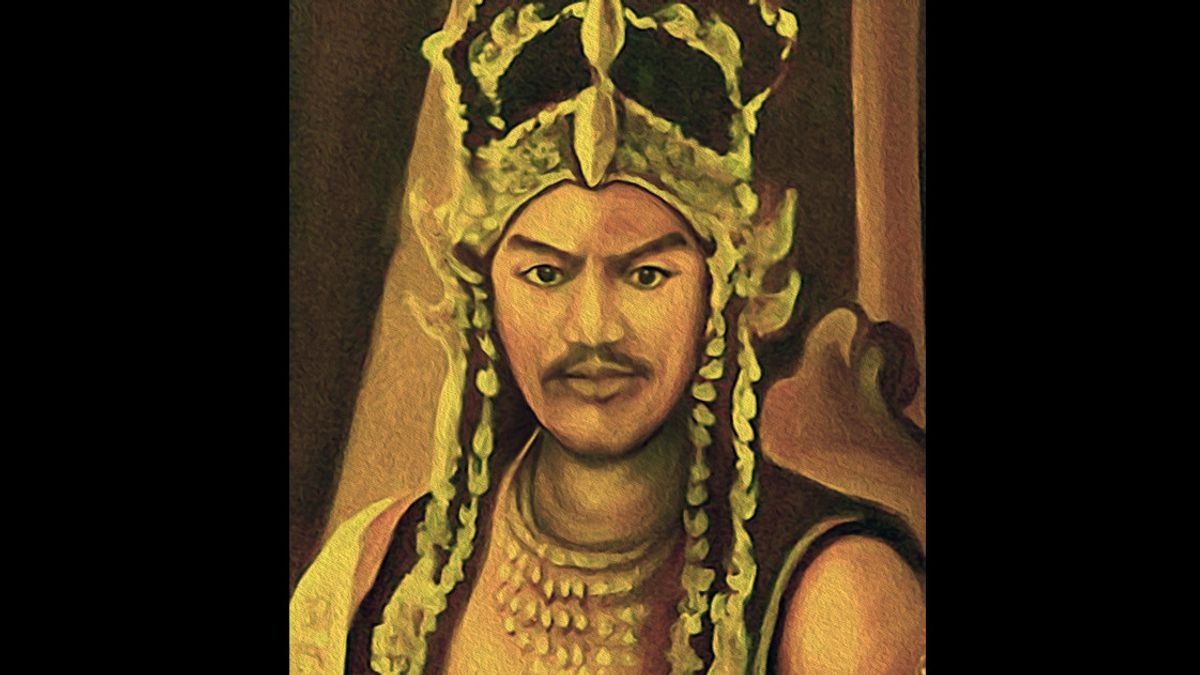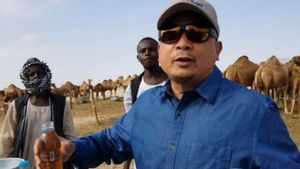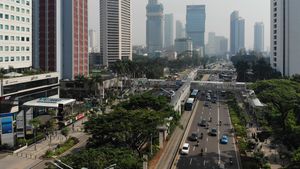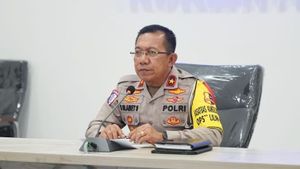JAKARTA - The interesting thing about the name Prabu Siliwangi is the debate about the truth of his figure. Is his existence real or just a figure in Sundanese folk tales? We traced the circular facts behind the name Prabu Siliwangi.
A paper entitled The existence of the Kingdom of Pajajaran and Prabu Siliwangi by Mumuh Muhsin Z from the University of Padjajaran describes mental and social facts (mentifact and socifact) which are strong facts of the existence of Prabu Siliwangi in the real world.
Prabu Siliwangi is not a myth, but a historical name, which means that it is the historical basis of the stories that are circulating about it. Siliwangi is another name for Sri Baduga Maharaja. He is the King of the Kingdom of Sunda (Pakuan Pajajaran) who is primus interpares; Raja Pinunjul among other Sundanese kings.
Various sources state that the Kingdom of Sunda went through a golden age during the reign of Prabu Siliwangi. In fact, the end of Prabu Siliwangi's leadership is believed to be the beginning of the downturn and collapse of the Sunda Kingdom.
The capital city of Pajajaran Kingdom is Pajajaran City or Pakuan Pajajaran or what is currently known as Bogor City. In the past, people called the name of the kingdom by the name of its capital. The kingdom of Pajajaran was previously founded in 923 by Sri Jayabhupati, based on the Sanghyang Tapak Inscription.
The fact of the existence of Prabu Siliwangi is also written on the Batutulis Inscription made by Prabu Surawisesa, the King of Sunda who ruled for 14 years (1521-1535 AD). The inscription was made to commemorate the glory of his father, who was Prabu Siliwangi. The inscription also explains how the territory of King Siliwangi's inheritance has begun to be seized one by one.
Based on various historical sources, Prabu Siliwangi had 151 wives. However, only a few of his wives are often mentioned in stories about King Siliwangi. Prabu Siliwangi also married a Muslim woman named Subang Larang. His tolerant nature is also shown by his attitude that does not prohibit his children from embracing Islam.
The key to the welfare of the people is the style of Prabu SiliwangiPrabu Siliwangi was known as a wise king. This policy is believed to be the key to success in improving the welfare of the Pajajaran people. Under his leadership, the Pajajaran Kingdom was able to build defensive trenches and make several inscriptions. At that time Pakuan Pajajaran was also the second largest city in the archipelago after Demak.
In addition, the success of Prabu Siliwangi's leadership was also due to his ability to design a qualified war strategy. According to a sheet known as Sangyang Siksakandang Karesian, there are values of military strategy that prevailed in the era of King Siliwangi.
Some of the strategies include Makarabihwa (defeating the enemy using the power of influence, Katrabihwa (division of soldiers' positions when attacking), Lisangbihwa (providing motivation and fueling the fighting spirit of the soldiers), and Singhabihwa (defeating the enemy by inserting a small team of infiltrators into the enemy line) -this strategy is now also known as the 'Sundanese War Strategy'.
From folk tales and legends, the success of Prabu Siliwangi's leadership was also inseparable from his nurturing nature. He is also known as a leader who cares for the little people. The message was sent down and down until it was written on the Kawali inscription.
Prabu Siliwangi also applied silih asah (sharpening mutual knowledge), compassion (loving one another), and caring for each other (protecting and protecting each other). Asah, asih, foster care has also become a guideline for Sundanese society which is quite important until now.
The Sundanese people also believe that Prabu Siliwangi did not die, but rather 'nga-hiyang' or the process of leaving one's body and soul to a place but not forever. Prabu Siliwangi disappeared after delivering the message or what is also known as Uga Wangsit Siliwangi. But several sources also say that Prabu Siliwangi died in 1521 and was buried in Rancamaya, Bogor.
The English, Chinese, Japanese, Arabic, and French versions are automatically generated by the AI. So there may still be inaccuracies in translating, please always see Indonesian as our main language. (system supported by DigitalSiber.id)










